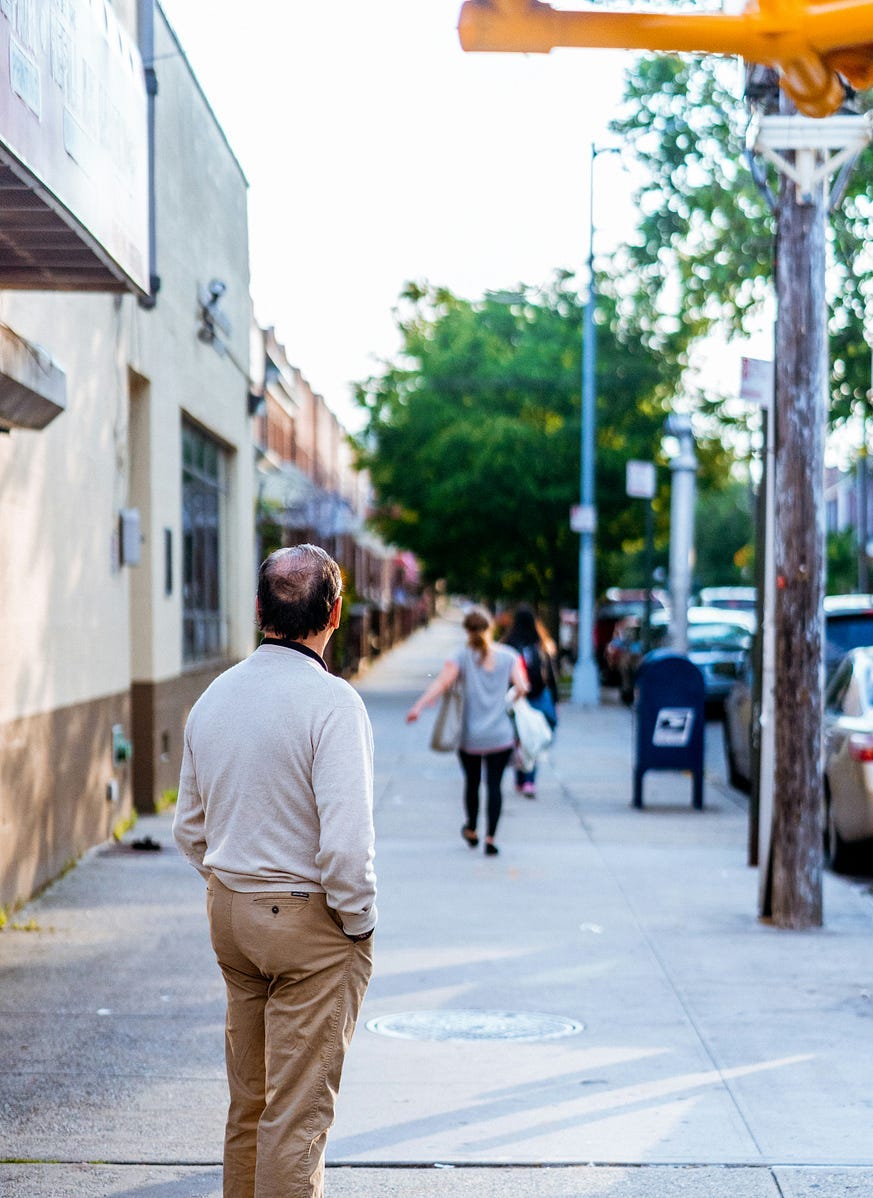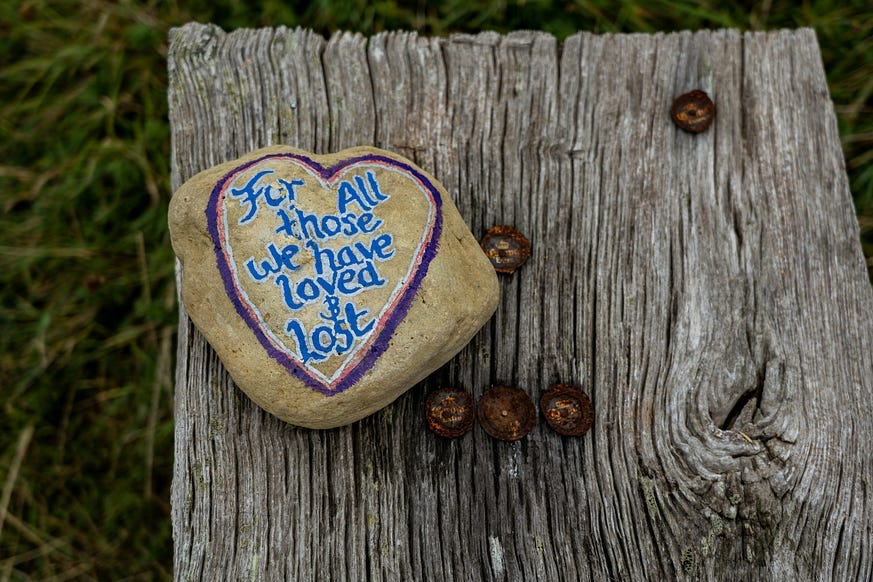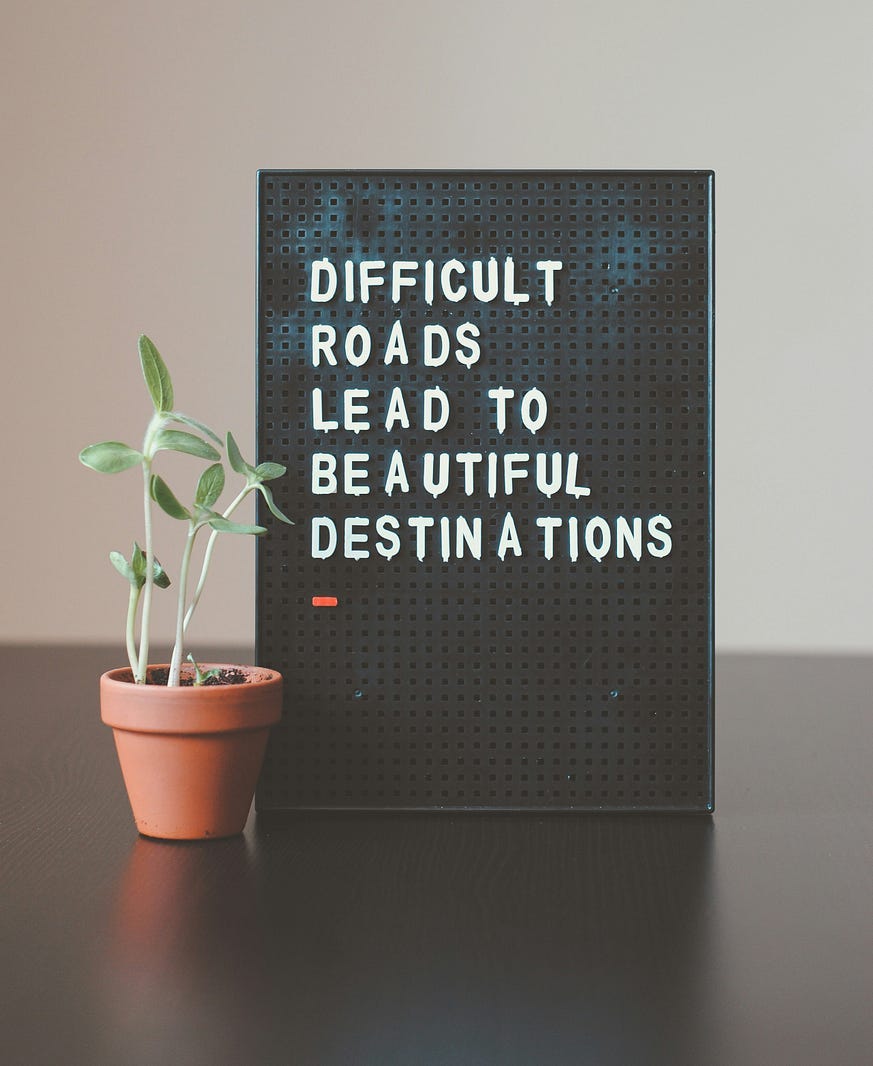4 Lessons I Learned From an Avoidant Discard — One of the Worst Ways for a Relationship To End
And it happens more frequently than it should.

Our culture has rewarded those who take the coward’s way out of ending relationships.
A relationship I experienced went from genuine curiosity and interest for one another on day 1 to disdain and loathing for each other on day 48. This was one of the worst breakups I have experienced so far (second only to my first relationship ending).
If you have never been discarded by someone, you might struggle to imagine the pain of it.
I met “Julie” (we’ll call her that for privacy) two months after a dating hiatus. We met on an app. For a week we built a connection via text before our date.
When we started dating, I knew she would teach me a lesson. I didn’t know what it was, but every partner I’ve had has taught me something.
On the first date, I discovered we had a lot of chemistry. We shared a lot about things like “our current life situations”, religion, politics, music, and our fondness for everything dark and morbid.
To add to all of that, Julie was outgoing, charismatic, smart, sexy, kind, and nurturing, and I didn’t overthink whether I wanted to continue dating her.
Lesson:
I used this strategy to avoid overthinking in this relationship:
“Do the two of you fit together?”
“Do your values align?”
“Are you both on an upward trend and growing together?”
But this failed me.
First, I was blinded by “love”, and while I saw us as a couple with great potential who shared a lot of the same values, I failed to see how extensive my attachment style was clouding my judgment.
After this relationship was said and done, I audited this strategy. I realized I left out a 4th criterion.
4 Lessons I Wish I’d Learn Earlier in My Search For a More Compatible Partner
An assumption that we may often make — a blindspot in our own thinking that is costing time.medium.com
Did she want to be a partner to someone?
Or did she want the validation from a title without reciprocating?
While the idea of twin flames or soulmates is absolute bullshit, at the time I thought I had found the right person I was meant to be with.
A few weeks went by, and she brought up that she wasn’t seeing or talking to anyone else. We both agreed to date exclusively. I thought about this some more, and about another week after this, I asked her to be my girlfriend.
But I was met with:
“I’m terrified of a relationship… I don’t want to build a life with anyone right now.”
She was thinking about a new relationship when I brought the question up weeks prior about her dating goals.
Julie had developed a bitterness towards men after several failed relationships.
I twisted and molded myself, and in that moment I abandoned what I wanted from a relationship, and I told her I didn’t want anything more from her other than her willingness to stay with me.
Lesson:
In hindsight, I should have ended our exclusivity right then and there with her. However, often, we choose the lesser of two evils when it comes to relationships.
Sacrifice our true desires — what we want a relationship to look like, and what we need for that to happen to appease someone else so we won’t be alone.
To add, as an anxiously attached individual, I, like many others who share this trait think they can change or win someone over by “showing them how good we are”.
We talked about it for a little bit more, and we agreed to a relationship.
Julie and I spent a weekend together.
This is where things started to change. Before this, we were happy together; though I did begin to notice that her presence would trigger my anxiety.
There were a few situations in which I started to feel like I couldn’t trust her.
Her actions weren’t exactly lining up to her words.
Right before the weekend we spent together, she was presented with an optional, work-related trip she was asked to attend.
Her work schedule was adding stress to her life, and this work trip she was mulling over was causing her anxiety.
I tried to comfort her as best as I could, but at the end of the day, I knew that this decision was her choice alone to make. Yet, a day after that weekend together, her demeanor towards me had changed.
We spent a weeknight together, but she didn’t seem present.
Even though something felt off, at face value, I had no reason to believe the relationship would soon end. She went out of her way to describe the experiences she was excited about sharing with me in the future.
What else was I to think? Should I distrust everyone or see the good in them? Isn’t life better when we can be optimistic?
Lesson:
People with an “avoidant” attachment style are triggered by emotional closeness, intimacy, commitment, and relationship turbulence. Avoidant people can easily be intimidated by their partner if their partner displays emotions they can’t accept about themselves.
For example, if someone has a hard time accepting the grief they have inside of themselves, they’ll likely resent their partner for displaying the same emotion.
Most of the time, when avoidant people get triggered and shut down, it’s an involuntary response that no amount of persuasion can fix.
Julie had decided to attend this trip. One afternoon, a few days before she planned to leave, she came over to see me.
I felt tired and sad that day (before she arrived). When I let her in, she blurted out “I wanted to cancel on you, but I also wanted to see you before the trip.”
This activated something in me and I “shut down”. I didn’t know what to say to that, and she continued to pressure me to entertain her in conversation.
She didn’t stay long, saying she felt uncomfortable that I wasn’t talkative.
I meekly pleaded with her not to leave, but after a few minutes of protesting, I let her go.
She gave me a big hug, and we kissed for several minutes before she left, yet, in those moments, I knew this would be the last time I ever saw her. I was right.
Despite not only reminding her, but it being a common practice between us, Julie never texted me that she made it home safely that afternoon. I began to worry. Something wasn’t right.
She was home, but she chose not to tell me she was. Since that afternoon, it was like a “switch was flipped in her brain”. Her text messages were cold and robotic.
She only replied if I messaged her first, and when I asked to call her, she refused. Julie changed her mind and canceled the trip because she was too anxious about it.
Since I thought that stressor was out of the picture, she would return to “normal”, but Julie continued to communicate sporadically. After this, over the next few weeks, she slowly pulled away.
Since she was free that weekend, I tried to plan dates with her, but she canceled on Saturday with a poor excuse.
There was no communication between us at all on Saturday until I asked her if we were “still good for this date at this time”. There wasn’t a reply for a few minutes, it was quite late in the day, but she said she had just woken up.
It was very likely a lie. I think she hoped I would forget about the date and let her absence slide.
Frustrated, I tried to reschedule for a different time and I was met with another excuse, when I finally said, “Look, we need to spend time together, can we plan a date for the next day, is that something we can agree on?”
“Yes, I can do that, it won’t be a problem.”
Again, the next day, I had to go out of my way to confirm if we were “still on” for quality time together. She flaked the second time. Julie’s excuse for this was concerning because she cited how she “didn’t like how our communication made her feel”.
I felt anxious, frustrated, and scared because this relationship was in jeopardy. I did everything possible to re-establish consistent communication with this person for days before this.
The dialog between us had been slowly deteriorating. She wouldn’t answer any calls.
I didn’t know what was going on with her. She didn’t ask, but I told her I would give her some “space” for a few days so she could “come back” from her avoiding me.
But I knew that I was amid a discard.
She was stonewalling. Stonewalling is a manipulative, and quite frankly, abusive relationship pattern that is characterized by intentionally withdrawing from a conversation or physically removing oneself from a situation.
How Stonewalling Harms a Relationship
Stonewalling or intentionally shutting down during an argument can cause serious emotional harm to a relationship. Find…www.verywellmind.com
While it is important to remove oneself from a situation for safety, stonewalling is often an unconscious tactic people employ to avoid the uncomfortable feelings associated with relationship problems that aren’t so easily “sorted out”.
You could point out that I did it earlier with her, but I was not trying to create distance from her when I felt triggered.
I didn’t know what to say to such a blunt statement of “I wanted to cancel on you, but I also wanted to see you before the trip.” I did my best to re-ground myself in that interaction and open up, but my “anxious” side was activated.
The discard happened in less than 9 days. We went from being close, to being ghosted in that short of a period.
The most frustrating part of this was (at that time) that I never treated a partner as well as I had than with her. She got nothing but kindness, respect, honesty, affection, a willingness to change, and love from me.
From what I know of how Julie was treated in the past, she wasn’t used to kindness.
None of her previous relationships were healthy; how she described her past makes me picture a lot of toxicity, abuse, and emotional distance.
She even told me several times she didn’t know “what to make of me”, and when I looked back, the pieces started to fit.
Julie was not ready to commit to a real, intimate relationship.
Since it had been days since I had seen or spoken to her — there was a glaring lack of normalcy in our “relationship”, I messaged “Are we going to work things out, or is this relationship over? I need to know whether or not I should ‘move on’.”
Her response was cold, distant, and heartbreaking, “Ok. So, move on.”
It’s like she didn’t care about me anymore. Was this it? I needed more clarification:
“I like you, you’re great, but I think I work too much and can’t give you the time a relationship needs.”
For a few days, I bought into this answer. Yet, as time went on, I couldn’t accept this.
I still wasn’t satisfied with someone casually and flippantly ending a relationship this way. Regardless of the age of this relationship or the pretenses it was built on, this was still an official relationship we agreed upon.
Anyone with a shred of decency or respect would not ghost or discard someone like this.
As much as I hate dealing with relationship problems over text, to get what I wanted out of her, I sent a long-winded final message hoping to provoke a real answer. To paraphrase my message,
“You discarded me because you think I’ll hurt you. I truly care about you, and I would never treat you like other people have. There’s plenty of time for a relationship. Discarding me was selfish and disrespectful.”
Her reply was harsh.
I’ll paraphrase, but it went like this:
“I’ll try to be polite and overlook your insults. The real reason I don’t want to see you anymore is that I find you too boring. I don’t want a relationship with you because we aren’t compatible in the way I want. It’s that simple. I’ve moved on.”
She hoped I would fall for this because on two occasions I mentioned I wasn’t the most “charismatic or outgoing” person. I can be “boring” sometimes.
From her own words, this seemed to suit her, because she didn’t want any more drama in her life.

Lesson:
Heartbreak can unearth a shitstorm of unprocessed grief and abandonment.
Julie not only pulled away a week before that, but she hoped that I would have simply forgotten about her and moved on. I cared about her, and it hurt to be discarded like this.
The emotional turmoil that this caused reminded me of how my father left.
He just left, it’s like I didn’t matter to him, and no one ever explained to me why it happened. When I realized this was reminiscent of that, it re-opened a flood of grief from that time.
The way that she spoke to me with that final message was eerily similar to the same tone that my grandmother would speak to me with when she was angry.
When I look back at the lessons I learned. I should have followed my gut, but at the same time, I was meant to relive such an experience. I let my feelings get in the way. I even let rejection define who I was and what it said about me as a person.
Enjoy what you just read? 🌟 This is just the beginning! Subscribe to my premium newsletter for more exclusive content, deep dives, and personal updates that I only share with my paid subscribers.
Your support not only lets you access more of what you love but also helps me create more amazing content.
Upgrade now and become part of our closer community.



